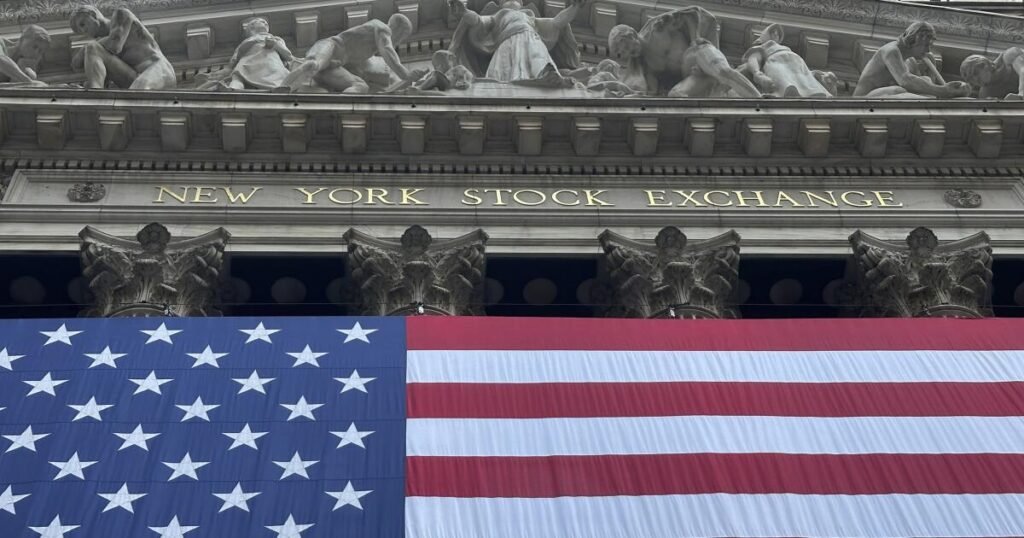Wall Street’s record rally continued on Wednesday as a weak report on the U.S. economy left interest rate cuts open to possibility.
The Standard & Poor’s 500 index rose 0.5%, hitting a new all-time high for the second consecutive day and its 33rd this year. The Dow Jones Industrial Average fell 23 points, or 0.1%, while the Nasdaq Composite Index rose 0.9% from its previous record. Trading closed early ahead of the Fourth of July holiday.
Tesla again lifted the market, climbing 6.5% yesterday after reporting a smaller decline in spring sales than analysts had feared. The company, along with Nvidia, was one of the strongest drivers of the S&P 500’s gains. Wall Street’s burgeoning darling in artificial intelligence technology rose 4.6%, bringing the semiconductor company’s gains this year to 159%.
Bond markets were more active, with Treasury yields falling after a series of weaker-than-expected reports from both the labor market and U.S. service companies, data that could put the Federal Reserve on track to cut interest rates this year, something Wall Street hopes will happen.
A report showed that business activity in real estate, retail trade and other U.S. service industries contracted for the third time in 49 months in June. The figure was weaker than expected by economists who had expected only slowing growth. Perhaps more importantly for Wall Street, a report from the Institute for Supply Management said the pace of price increases is slowing.
This followed earlier morning reports that showed the job market was slowing. One report said the number of U.S. jobless claims last week was slightly higher than economists had expected but still low compared to historical figures. Another report from ADP said nongovernment employers slowed their hiring last month, when economists had expected it to accelerate.
Wall Street is hoping the economy will soften just enough — enough to keep upward pressure on inflation at bay, but not so much that workers lose their jobs and trigger a recession. On Friday, the U.S. government will release a comprehensive update on how many workers employers added in June, a much-anticipated report.
The yield on the 10-year Treasury note fell to 4.35% from 4.44% late Tuesday in a notable move for the bond market. Most of the decline followed a report on the U.S. services sector. Yields have been trending lower since April on expectations that inflation is slowing and that the Federal Reserve will cut its key interest rate from its highest level in more than two decades.
Wednesday’s move erased some of the recent recovery in yields.Last week’s debate between President Biden and former President Trump prompted some traders to make moves in anticipation of a Republican landslide victory in November, raising the chances of tax cuts and other policies that could balloon the U.S. government’s debt.
The yield on the two-year Treasury note, which more accurately reflects expectations for Fed action, fell to 4.70% from 4.75% late on Tuesday.Traders now see a nearly three-quarters chance that the Fed will cut its key interest rate as soon as September, according to CME Group data.
On Wall Street, Constellation Brands fell 3.3% after trading up and down during the day. The maker of Modello beer and Robert Mondavi wine reported better-than-expected profit for its latest quarter, but sales fell slightly below analysts’ expectations.
Overall, the S&P 500 rose 28.01 points to 5,537.02, the Dow lost 23.85 points to 39,308.00 and the Nasdaq Composite added 159.54 points to 18,188.30.
This has traditionally been a strong time of year for Wall Street, according to Mark Hackett, head of investment research at Nationwide: The first two weeks of July were the best for the stock market since 1928, he said, and the S&P 500 has posted its ninth consecutive July gain.
Despite worrying reports that lower-income U.S. households are still struggling to keep up with high inflation, “investor optimism continues to drive the market higher,” Hackett said.
Overseas stock indexes rose in many European and Asian countries. France’s CAC 40 index rose 1.2%, clawing back losses caused by concerns that a shift away from centrist policies would lead to higher French government debt.
Ahead of the UK general election, London’s FTSE 100 index rose 0.6 percent and Tokyo’s Nikkei average rose 1.3 percent.
Choi is a contributor to The Associated Press.

